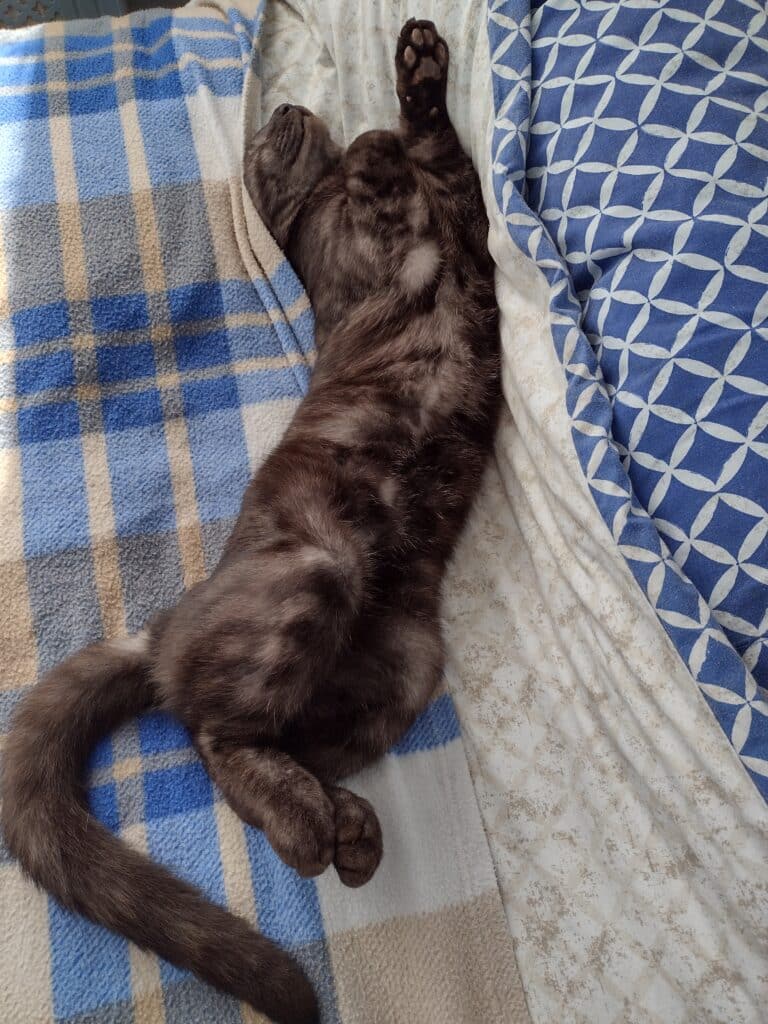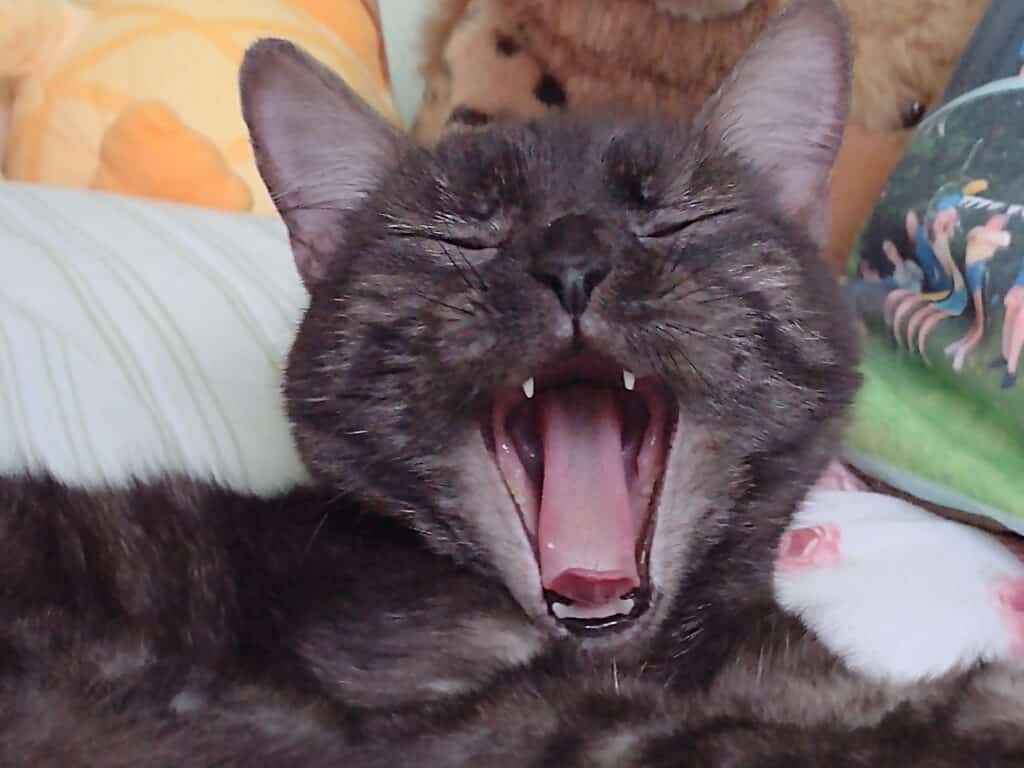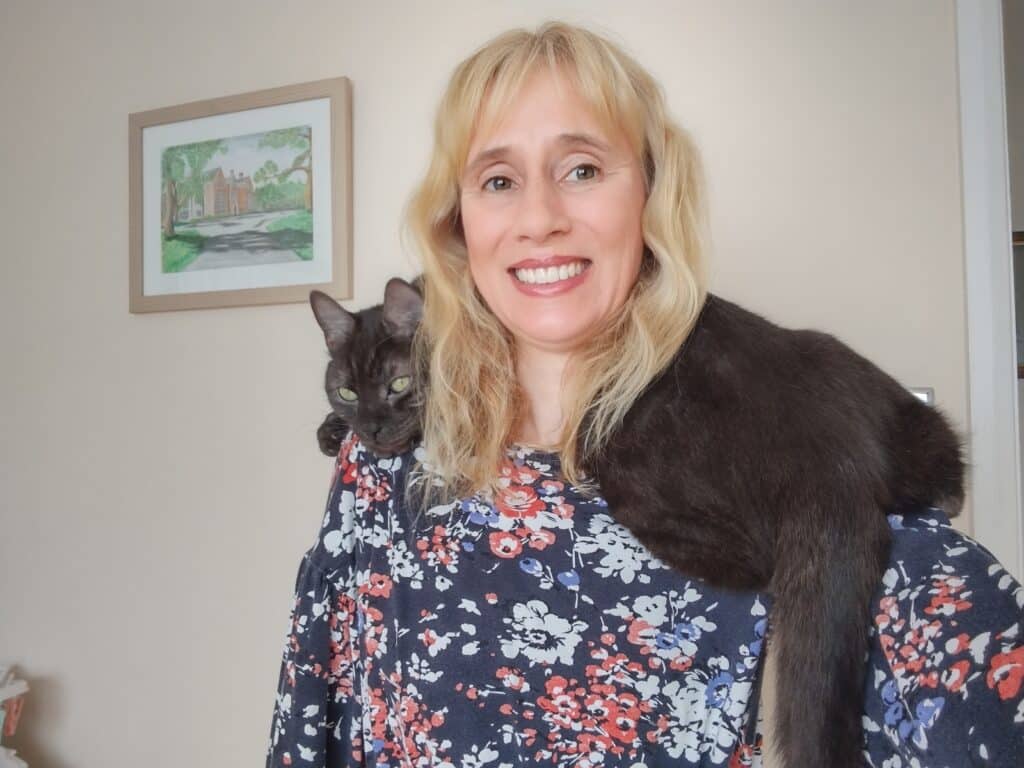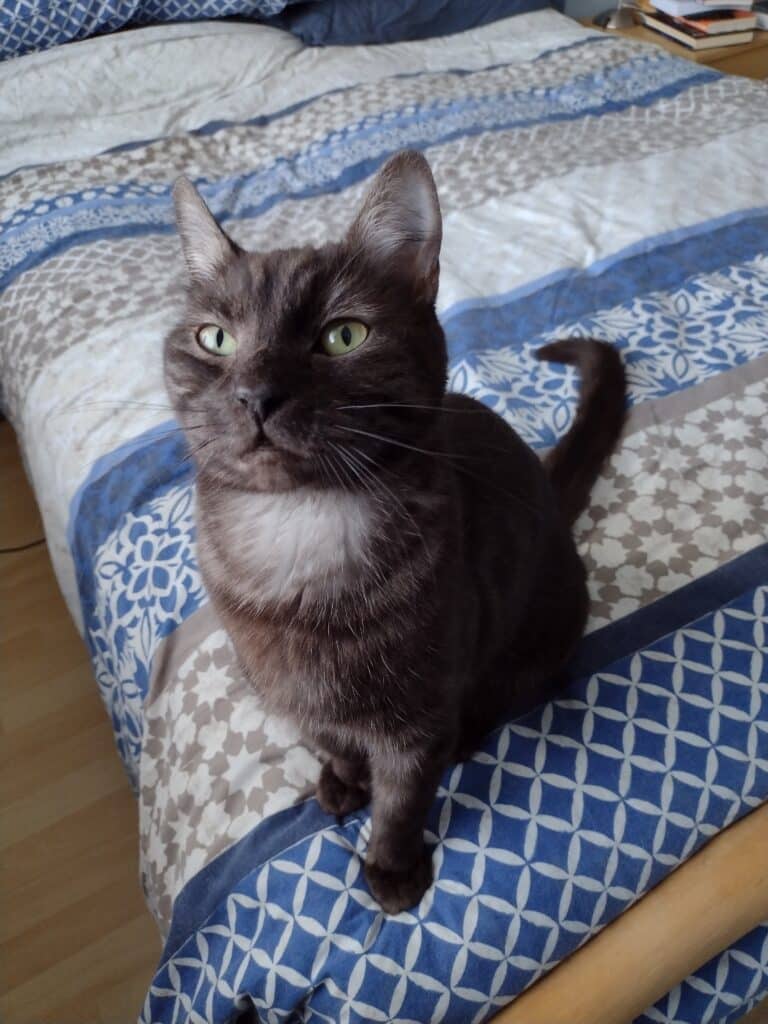Pickle’s Long-term Predicament
In 2020 Pickle’s owners picked up a gorgeous little kitten from the Blue Cross centre at just 12 weeks old.

The following summer he developed an increased respiratory rate, it was a real effort for him to breath, he lost weight and was making strange sighing noises. His owners took him to their vet who took some chest x-rays. These radiographs revealed changes that raised concerns of perhaps a cancerous or infectious disease.
He was then referred to our team at Anderson Moores in Winchester for further investigations. Kine Bergum Hjellegjerde one of our Residents in Small Animal Internal Medicine treated Pickle and organised for him to have a CT scan, lung lesion needle aspirate, cytology and blood tests. These investigations revealed severe life-threatening lung changes.
Kine diagnosed Pickle with severe pulmonary Mycobacterium spp infection. This is a bacterium that can potentially cause a zoonotic infection, and the risks were clearly explained to his loving owner.
The challenges of treating this disease are numerous, and many people opt for euthanasia because of the long course of therapy, uncertain outcome and ongoing intense monitoring.
Medical management consists of a long course of a combination of different antibiotics, and there is a risk of severe side effects and potential antibiotic resistance development. Pickle was kept inside and separate from the other four other cats in the household, with a strict hygiene routine.
He had to be kept away from close contact with the owner’s face, and not allowed to lick, scratch, or bite them. Young children, immunosuppressed individuals, individuals with chronic disease or pregnant people had to avoid him. His dedicated owner also worked with her GP to ensure her family and herself were at low risk of infection.
The four other cats at home were tested with radiographs to ensure they did not also have evidence of infection. The owner also checked with the Blue Cross, and the mother and siblings were all fine.

After two weeks of medication (three times a day), he had put weight on and was having blood tests every two months due to the risk of developing side effects from the medication. Pickle had repeated thoracic radiographs after six, nine and 12 months, as the advice is that medical management is discontinued two months after no further radiographic changes.
It was a long process for Pickle, his owners and other pets, in the end he was separated from the other cats for a year in total!
The risk of transmission of mycobacteria from animals to people is considered very small, but common hygiene practices should be used (wearing gloves and washing hands after contact with exudates, disinfecting wounds, etc). Sadly, cats from homes with immunocompromised owners should not be treated due to the risk of transmission.
In order to limit the exposure of cats to tuberculous mycobacteria, they should not be fed uncooked meat or unpasteurized milk. Cats should not be allowed contact with cattle on M. bovis-endemic farms. Preventing cats from hunting prey also can help reduce risk. Pasteurisation, direct sunlight, 5% phenol, and 5% household bleach all kill mycobacteria
Prognosis for cure is fair to guarded. Long-term medical therapy usually confines the infection sufficiently to enable the pet to live a normal life in cases where a cure is not achieved. Cats achieving a cure usually require months to over a year of medication. His owner was so grateful that Kine gave him a chance and did everything she could to save his life.

Two years later and he happily jumps on his owner’s shoulder and is very cuddly!
She said “He is now totally fine and cuddles up with me on my pillow every night! He is a complete treasure. I am a real animal lover and Pickle is a much-loved member of the family. I just couldn’t bear the thought of not giving him a chance to fight this. We were totally baffled as to how he became infected and to this day are absolutely none the wiser. As a one-year-old cat, who just so happened to be completely adorable, I had to give him every chance I could. He saved my sanity during lockdown, so I had to try and save him too! I am enormously grateful to Kine for making him better and hope that his treatment and recovery will help further research.”
